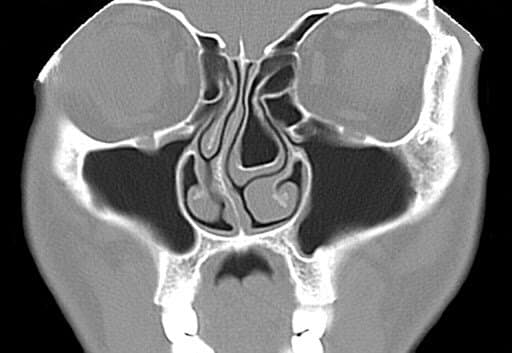How Allergies Causing Snoring Connect to ENT Health
Ever wake up feeling exhausted despite a full night’s sleep, with your partner telling you that you snored all night long? Or have you noticed your snoring tends to worsen during the spring or fall, or when you’re experiencing nasal congestion? If so, allergies may be the hidden culprit—and their effects go far beyond just making noise at night. In this patient-friendly guide, we’ll explore how allergies causing snoring influence not only your sleep but also your sinus health, and why consulting an ENT (Ear, Nose, and Throat) specialist could be a crucial step toward lasting relief.
Understanding the connection between allergies causing snoring and ENT health is important for anyone battling restless nights, chronic fatigue, or persistent allergy symptoms. Let’s take a closer look at what’s happening inside your nasal passages and airways—and discover practical ways to help you breathe easier and sleep better.
What Are Allergies Causing Snoring?
Snoring is a very common sleep disturbance, often resulting from partial blockage or narrowing somewhere along the upper respiratory tract. While there are many causes of snoring—including anatomical variations and lifestyle factors—one frequently overlooked trigger is allergies. In particular, allergic rhinitis, an inflammation of the nasal airways due to allergic reactions, is a leading cause.
How Nasal Allergies Lead to Snoring
When your immune system encounters allergens such as pollen, dust mites, or pet dander, it responds by releasing chemicals like histamine. This immune reaction causes the delicate tissues inside your nose to swell, increases mucus production, and makes your nose feel blocked or stuffy.
Imagine trying to breathe through a straw that’s partially pinched—your nostrils become congested, making normal nasal breathing difficult or impossible during sleep. As a result, you switch to mouth breathing, which alters the airflow in your throat. This abnormal airflow causes the soft tissues at the back of your throat to vibrate more intensely, producing the characteristic snoring sound.
In some cases, airway narrowing may contribute to obstructive sleep apnea (OSA)—a serious sleep disorder characterized by repeated pauses in breathing during sleep. Not all snoring indicates OSA, so proper evaluation is essential. OSA can cause significant health issues including daytime sleepiness, cardiovascular problems, and reduced quality of life [1, 2].
Allergic rhinitis affects a significant portion of the U.S. population—according to estimates, up to 30% of adults and 40% of children suffer from it—making allergy-induced snoring both widespread and often underrecognized.
“Many patients who struggle with snoring are surprised to learn their allergies play a major role,” says Dr. Amanda Lee, an ENT specialist. “By controlling their allergies, many find that their snoring improves dramatically.”
[1]: AAENTMD - Allergies and ENT Health
[2]: ZQuiet Blog - Allergies and Snoring
Symptoms Linking Allergies and Snoring to ENT Health
How can you tell if your snoring is related to allergies affecting your ENT health? Look out for the following signs that point to nasal congestion and airway issues disrupting your sleep quality:
- Persistent nasal congestion that makes it difficult to breathe through your nose, especially at night
- Snoring that worsens during allergy seasons (such as spring and fall) or after exposure to specific triggers like pet dander or dust
- Mouth breathing during sleep, often noticed by bed partners as dry mouth upon waking
- Daytime tiredness, difficulty concentrating, or morning headaches, all common consequences of poor sleep
- Sinus pressure, postnasal drip, sore throat, and sinus headaches that persist or worsen with allergies
These symptoms suggest your nasal passages are struggling to maintain open airways during sleep, resulting in snoring and disturbed rest.
When to See an ENT Specialist
While sometimes the cause of snoring is clear—it’s the nasal allergy symptoms—other times structural factors like a deviated septum, enlarged tonsils or adenoids, or nasal polyps may contribute. If your snoring is:
- Loud and persistent
- Interrupted by choking, gasping, or pauses in breathing
- Causing significant daytime fatigue despite adequate hours of sleep
then seeking an evaluation from an ENT specialist is strongly advised. These experts have the tools to determine if allergies, anatomical issues, or other conditions like sleep apnea are responsible.
An ENT consultation might involve nasal examinations, imaging studies such as CT scans, or a sleep study to fully assess the airway. These steps help guide targeted treatment, improving symptoms and overall health [3].
[3]: Commonwealth ENT PC – Snoring & Sleep Apnea
Causes of Allergies Causing Snoring
Most snoring caused by allergies can be traced back to the “usual suspects” involved in allergic rhinitis, which creates chronic nasal inflammation:
- Pollen: Seasonal allergies in spring and fall when trees, grasses, and weeds release pollen into the air
- Dust mites: Microscopic creatures living in household dust, bedding, and upholstery, causing year-round symptoms for many
- Pet dander: Proteins shed by cats, dogs, and other furry pets that provoke allergic responses
- Mold spores: Growing in damp areas inside and outside the home, especially during humid seasons
Allergens inflame the nasal passages, leading to swollen tissues and mucus buildup, which partially block your airflow during sleep. For some, perennial allergies cause constant nasal congestion, while others experience episodic flare-ups.
Additionally, allergies can worsen any underlying structural problems inside your nose. For example, swollen turbinates—the bony structures inside the nasal cavity—can further narrow the airway. Nasal polyps, which are inflamed, benign growths sometimes linked to allergies, may develop and create additional obstruction.
Sometimes, ongoing allergic inflammation paves the way for sinus infections, compounding congestion and increasing the risk of snoring or sleep apnea.
Treatment Options for Allergies Causing Snoring
The good news is that you don’t have to live with allergy-induced snoring. Multiple treatment strategies can reduce symptoms and improve your quality of sleep. Often, a tailored combination of medical therapies and ENT interventions provides the best results.
Medical Treatments
- Antihistamines: These medications block histamine, the chemical responsible for many allergy symptoms like sneezing and runny nose. Options include oral pills and nasal sprays.
- Nasal corticosteroid sprays: These steroid sprays effectively reduce inflammation inside your nasal passages, helping open blocked airways for easier breathing. Daily use often improves both allergy symptoms and snoring.
- Decongestants: These provide rapid, temporary relief of nasal stuffiness but should only be used for short periods to avoid rebound congestion. Consult a healthcare professional before use, especially if you have other medical conditions.
- Immunotherapy: Allergy shots or sublingual (under-the-tongue) tablets gradually desensitize your immune system to specific allergens. Over time, this can lead to lasting reductions in allergic reactions and improve snoring caused by congestion.
ENT Interventions
For some patients, allergy management alone isn’t enough—especially when anatomical factors are involved. An ENT specialist may recommend diagnostic procedures such as nasal endoscopy or imaging studies to get a detailed view of your airways.
Surgical treatments can be effective for correcting physical abnormalities that contribute to snoring:
- Removal of nasal polyps or growths
- Reduction of enlarged turbinates through turbinate reduction surgery
- Septoplasty to straighten a deviated septum
If obstructive sleep apnea is diagnosed, additional treatments such as continuous positive airway pressure (CPAP) therapy or oral appliances may be necessary.
“We see many patients whose snoring improves significantly after addressing nasal obstruction through both medical and surgical treatments,” notes Dr. Lee. “ENT care offers comprehensive strategies to restore better airflow.”
[4]: ENT of GA – Allergies and Sleep Apnea
Lifestyle Tips to Reduce Allergy-Induced Snoring
Along with prescribed medications or medical procedures, simple lifestyle modifications can help reduce allergy symptoms and snoring:
- Improve indoor air quality: Using HEPA-filter air purifiers, vacuuming and dusting frequently, and washing bedding in hot water every week can greatly reduce allergen levels at home.
- Avoid allergen exposure: Keep windows closed during high-pollen seasons, use air conditioning if possible, and limit direct contact with pets if you are sensitive to their dander.
- Adjust your sleep position: Sleeping on your side rather than your back can reduce airway collapse and decrease snoring frequency, particularly for those whose snoring worsens when sleeping on their back.
- Stay well hydrated: Drinking enough water helps keep mucus thin, making nasal breathing easier and less irritating.
- Use saline nasal rinses: Regular nasal irrigation can flush out mucus and allergens from your nasal passages, relieving congestion and improving airflow.
These practical habits, while simple, complement medical treatments and support long-term relief from allergy-related snoring.
Frequently Asked Questions (FAQs)
Can allergies alone cause snoring?
Yes. Allergies can cause nasal congestion and swelling, forcing you to breathe through your mouth during sleep. This change increases vibrations in the throat and leads directly to snoring. However, snoring is often multifactorial, and allergies may be one of several contributing factors.
How can I tell if my snoring is due to allergies or sleep apnea?
If your snoring gets worse during allergy season and improves with allergy medications, allergies likely play a significant role. However, if you experience pauses in breathing, gasping, or excessive daytime sleepiness, sleep apnea might also be a factor. A healthcare provider or ENT specialist can help distinguish between these conditions.
Are over-the-counter allergy medications enough to stop snoring?
For many people with mild allergy-induced snoring, over-the-counter antihistamines or nasal sprays can help. But if symptoms persist or worsen, a professional evaluation is recommended to rule out other causes.
When should I see an ENT specialist for my snoring?
Make an appointment if snoring disrupts your sleep or your bed partner’s, especially if accompanied by choking, gasping, nasal blockage, or daytime fatigue. ENT specialists can provide a detailed assessment and personalized treatment.
Can allergy immunotherapy permanently reduce snoring?
Immunotherapy can help many people develop long-lasting tolerance to allergens, which reduces nasal inflammation and congestion, often decreasing snoring over time. While not guaranteed to eliminate snoring in every case, it offers important, sustained benefits for allergy sufferers.
Conclusion
The link between allergies causing snoring and ENT health is stronger—and more important—than most people realize. Allergic rhinitis and other allergic triggers can significantly disrupt restful sleep by blocking your nose, forcing mouth breathing, and setting the stage for persistent snoring or even serious sleep disorders like obstructive sleep apnea.
Snoring isn’t just an annoying nighttime nuisance—it impacts your daily energy, mood, and relationships. Getting to the root cause of your snoring, particularly if allergies are involved, can dramatically improve your quality of life.
If you’re tired of restless nights, daytime fatigue, or ongoing sinus problems, consider reaching out to a qualified healthcare professional, such as an ENT specialist. With the right diagnosis and a personalized treatment plan, you can breathe—and sleep—more easily, waking refreshed and ready to face each day.
Book an appointment with an ENT specialist today to take the first step toward a quieter, healthier night’s rest.
Sources:
- AAENTMD - Allergies and ENT Health
- ZQuiet Blog - Allergies and Snoring
- Commonwealth ENT PC – Snoring & Sleep Apnea
- ENT of GA – Allergies and Sleep Apnea
This article is for educational purposes only and is not medical advice. Please consult a qualified healthcare provider for diagnosis and treatment.
Don’t let allergies slow you down. Schedule a comprehensive ENT and allergy evaluation at Sleep and Sinus Centers of Georgia. We’re here to find your triggers and guide you toward lasting relief.





